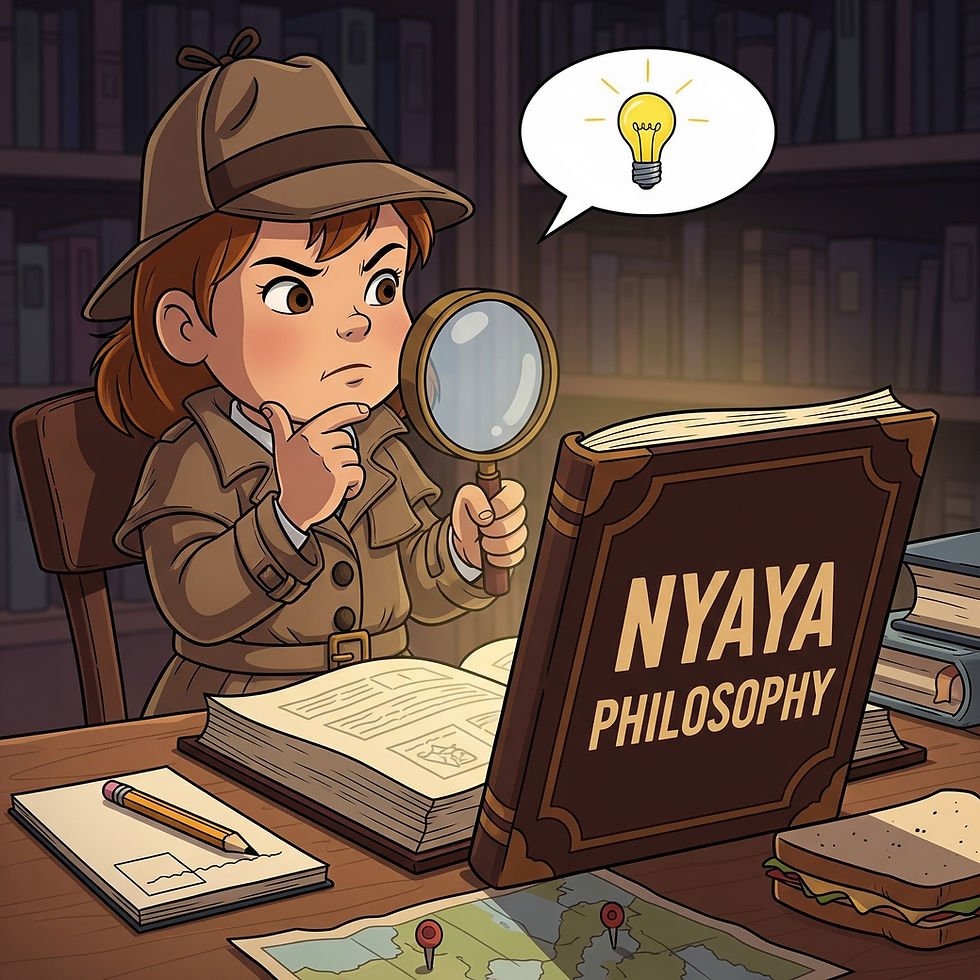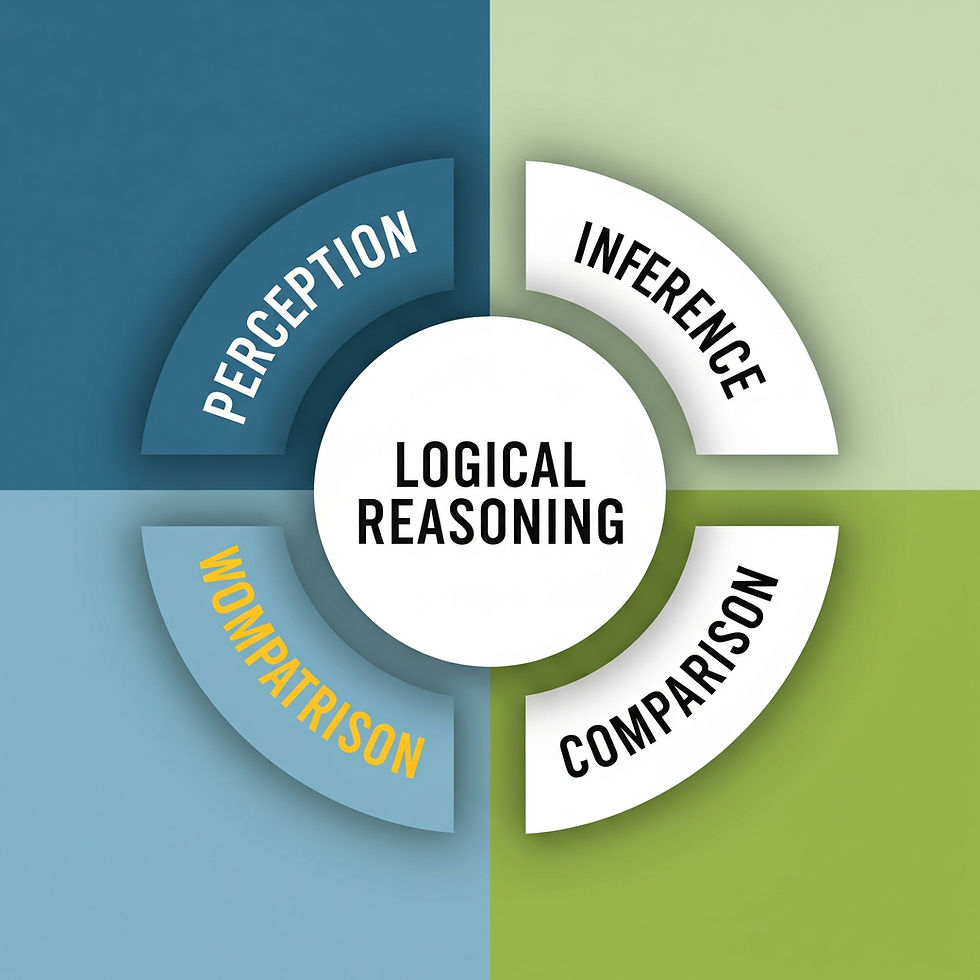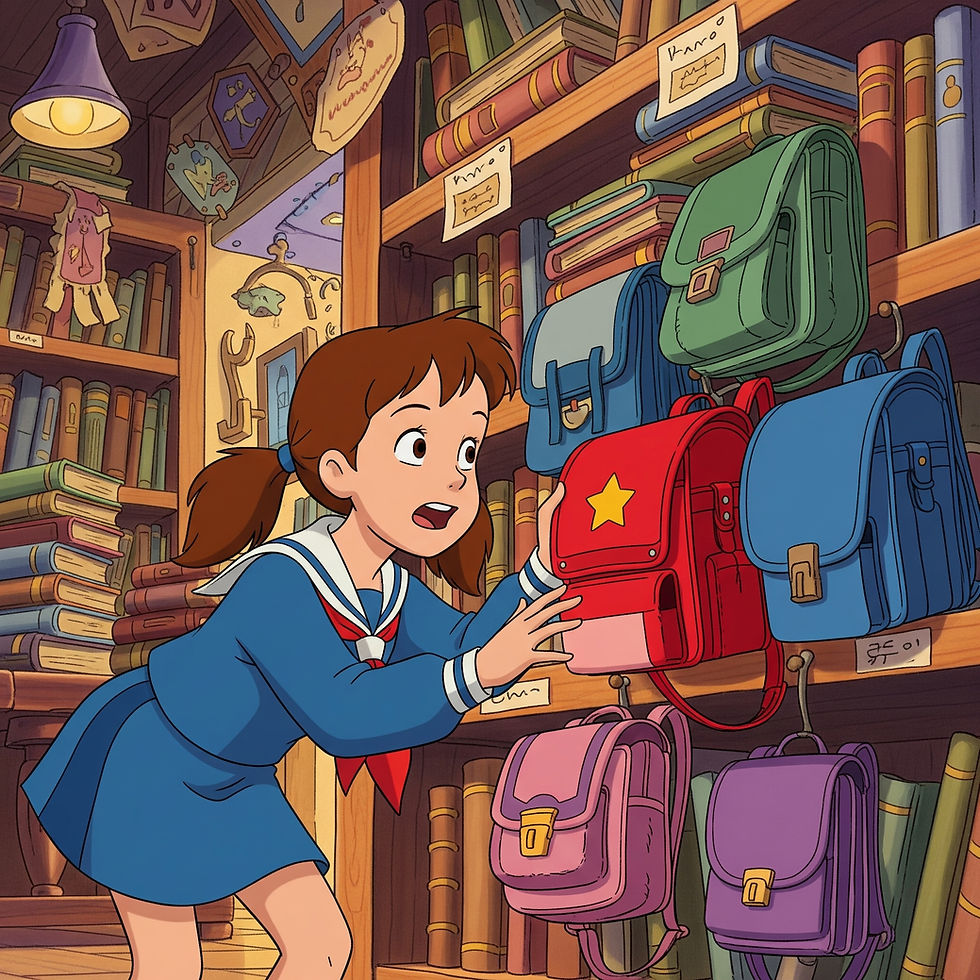Logical Reasoning: Nyaya Philosophy Explained to Kids
- myNachiketa
- 5 days ago
- 3 min read

Imagine you’re a detective trying to solve a mystery! You gather clues, ask questions, and think deeply to figure out what’s happening. This is similar to Nyaya Philosophy, which teaches us how to use logical reasoning to understand the world around us. It’s all about asking the right questions and finding the truth!
myNachiketa presents Logical Reasoning: Nyaya Philosophy Explained to Kids, helping children think clearly, ask questions, and discover truth through ancient Indian wisdom.
What is Nyaya Philosophy?
Nyaya Philosophy is one of the six schools of thought in Hindu philosophy. It was founded by the wise sage Gautama, who inspired many by teaching us how to think clearly and reason correctly. Just like you would use a map to find your way, Nyaya helps guide our minds to discover what is true.
Core Principles of Logic and Reasoning
In Nyaya Philosophy, we learn that logical reasoning is based on a few key principles:

Pratyaksha (Direct Perception): This is like using your senses to see or hear something directly. Say, you see a butterfly; that’s pratyaksha!
Anumana (Inference): This is when you make a guess based on what you’ve observed. If you hear thunder, you might think it will rain. This is Anumana!
Upamana (Comparison): This involves learning something new by comparing it with something you already know. For instance, have you ever tried kulfi?” “No.” It’s like ice cream but denser and creamier. Even if you've never had kulfi, you can imagine it by comparing it to ice cream.
Sabda (Word Testimony): This means trusting what wise people say, kind of like when you listen to your parents or teachers.
This way of thinking helps us ask questions like, “Why is the sky blue?” or “What makes a good friend?”
Everyday Life with Nyaya Philosophy
You're shopping for a school bag and want to make the best choice. Let’s see how the Nyaya principles help you think wisely:

"This red bag looks strong and has lots of pockets. I can feel the thick straps." You're using your eyes and hands to examine it directly. (Pratyaksha)
“If the bag has thick straps and big zippers, it must last longer and carry more books.” You guess based on what you observed. (Anumana)
“This bag looks like my friend Aarav’s backpack. His bag has been strong for a whole year, so this one might be too.” You’re comparing it with something you already know. (Upamana)
“The shopkeeper says this brand is very popular because it’s durable and comfortable.” You’re listening to an expert or trusted source. (Sabda)
By using these principles, you can make smart choices!
A Short Story about Ravi the Reasoning Kid
Let’s meet Ravi. One day, Ravi wanted to play a game but couldn't find his favourite toy. Instead of getting upset, he decided to use his Nyaya Thinking!
Directly look around: Ravi checked under the couch and in his cupboard (Pratyaksha).
Think about where he played last: He remembered playing outside earlier (Anumana).
Compare with other things he misplaced: Last week, he found his book under the bed (Upamana).
Ask his friends: He called his friend, “Have you seen my toy?” (Sabda).
Using logical reasoning, Ravi found his toy! This shows us how Nyaya can help in everyday situations.
Buy our books to explore more inspiring stories and lessons for children
Why is Nyaya Important?
Understanding Nyaya Philosophy is important for kids because:
It helps develop critical thinking skills.
Encourages curiosity to ask questions about the world.
Teaches us to make informed decisions in our everyday lives.
Develops kindness, respect, patience, and open-mindedness as we listen and learn from others' views.
Whenever you have a question or a problem, you can use your thinking skills to find the answer. So let’s keep asking questions, learning new things, and exploring the world around us. Who knows what fun mysteries you’ll solve next?

More such blogs
Resources





















Comentários